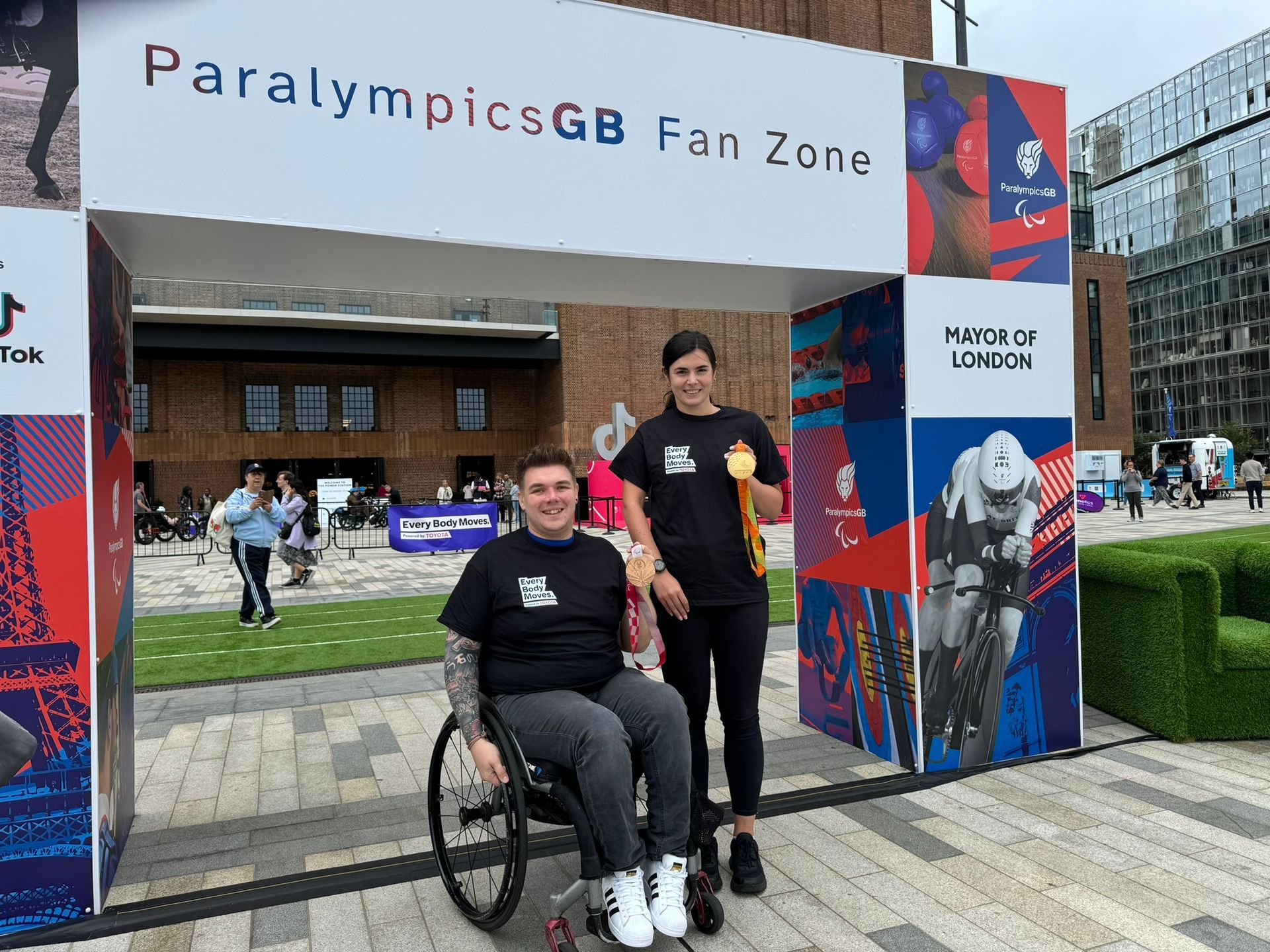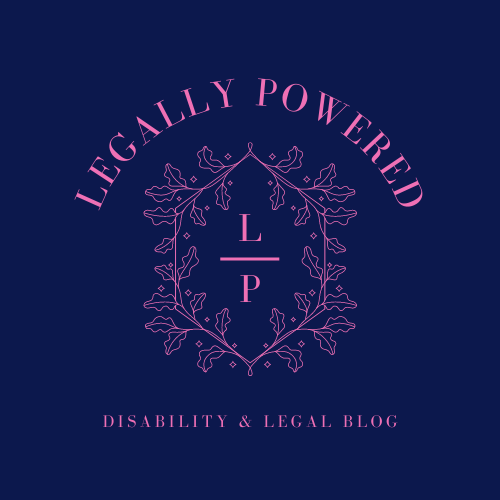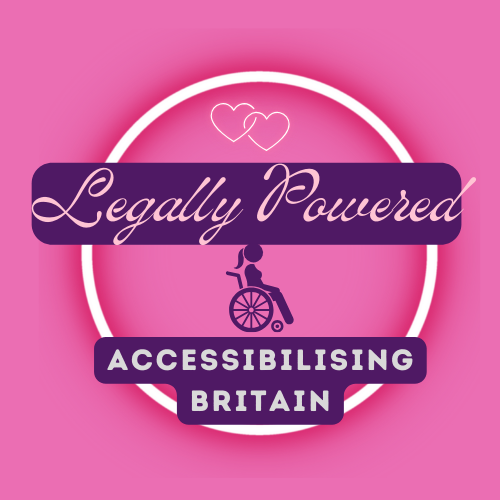Everybody Moves
Grace Clough and Jack Hunter-Spivey discuss why the campaign is so important and why you should get involved.

The Paralympics are very much about the elite athletes of this world.
However, all these athletes started somewhere. Whilst some were involved in sports from youngsters and were spotted by the various organisations, many went along to trial days.
As part of a drive to get more disabled people involved in sports, ParalympicsGB with Toyota, have launched a new initiative Everybody Moves in the hope to inspire more people to get participating in an activity that is suitable for them.
As part of the growing movement to get more coverage of the campaign I was invited along to the Offical ParalympicsGB Fan Zone at Battersea Power Station, to speak to Rio 2016, Gold Medalist in the PR3 mixed coxed four rowing, Grace Clough and Tokyo 2020 Para Table Tennis Gold Medalist Jack Hunter-Spivey.
After being inspired by the 2012 London Paralympics, Grace attended a SportsFest event in 2013 at the English Institute of Sport (EIS) in Sheffield to promote disability sports, trying a mixture of activities from athletics, cyling and rowing.
One year later she was competing. Grace was helping the mixed coxed four to the gold in the world championship and again in 2015 before she made her debut at the 2016 Paralympics in Rio. Grace said, “I never thought that opportunity would take me to where it took me to. It's a crazy experience where I can still remember stood on that podium as if it was yesterday, but it also feels like a lifetime ago as well. I feel very privileged to have had that experience”.
For Jack his journey into table-tennis started at the age of 10, “it was a place for disabled kids really and we used to get a hot evening meal. They had table tennis and I just fell in love with the sport. One of the reasons why I love table tennis so much is that I could play with my non-disabled friends, and I was able to beat them.
For Jack the everybody moves campaign is something he is very passionate about. “Over 80% of disabled people have said that physical activity would help them in some way and for me, it's not just about elite Sport, it's about getting everybody involved in whatever way they can”.
Grace talked about turning up to her first day at the trials, “Everyone's got to start somewhere. For me, when I turned up on that day at the EIS, I'd never stepped foot in there. I've never gone into any disability sport before and I just thought, this is something I've got to try, do something that was more tailored towards me as someone with a disability.
The Everybody moves campaign is trying to get everybody moving and enjoying the freedom that sport, or activity can bring. It can help you physically, help you mentally and improves on your confidence.”
Asking Jack for his advice on where to start he said, “just go and do it and that might be the scariest thing you ever do, to go to that first session at a club, but there's only positives that can ever come out of that. There will be no negatives from you reaching out, whether that's by making friends, getting yourself physically fitter or improving your mental health. There's a lot of positives from getting involved in the Everybody Moves project".
Research has been carried out on Behalf of ParalympicsGB* which shows the impact disabled people face with activity because of factors outside of their control such as Covid-19 and the cost of living.
- Disabled people are almost twice as likely as non-disabled people (17% compared to 10%) to say they are unable to find accessible and inclusive activities near them.
- Disabled people are twice as likely as non-disabled people (30% compared to 15%) to say they are feeling lonelier and more isolated now than before the pandemic and cost of living challenges.
- 82% of disabled people could name at least one reason why taking part in physical activity and or sport is important to them.
- Almost half (48%) of disabled people agreed that being part of an inclusive community involved in physical activity is important to them.
The Everybody Moves website, which has been co-produced by disabled people features more than 7000 activities, including at home sessions and hints and tips.
ParalympicsGB and OceanOutdoors have teamed up to launch the offical ParalympicsGB Fan Zones across the country. Each fan zone has lots of activities to try out until the closing ceremony on the 8th. Try your hand at wheelchair cycling, rowing, Boccia or Blind Goalball to name a few.
Whether you are looking for a new activity, to improve your mental health, make new friends, or find an inclusive sport the Everybody Moves website will direct you to your nearest activity. And who knows you could be the next Paralympian heading to LA2028!
*Source: Savanta interviewed 2572 UK adults (aged 16+) online between 17th -19th February. The sample included a boost for people with a long-term physical condition, mental condition and/or disability, bringing the total of those with a long-term condition and/or disability interviewed to 1053. Data were weighted to be demographically representative of UK adults by gender, region, and social grade.

